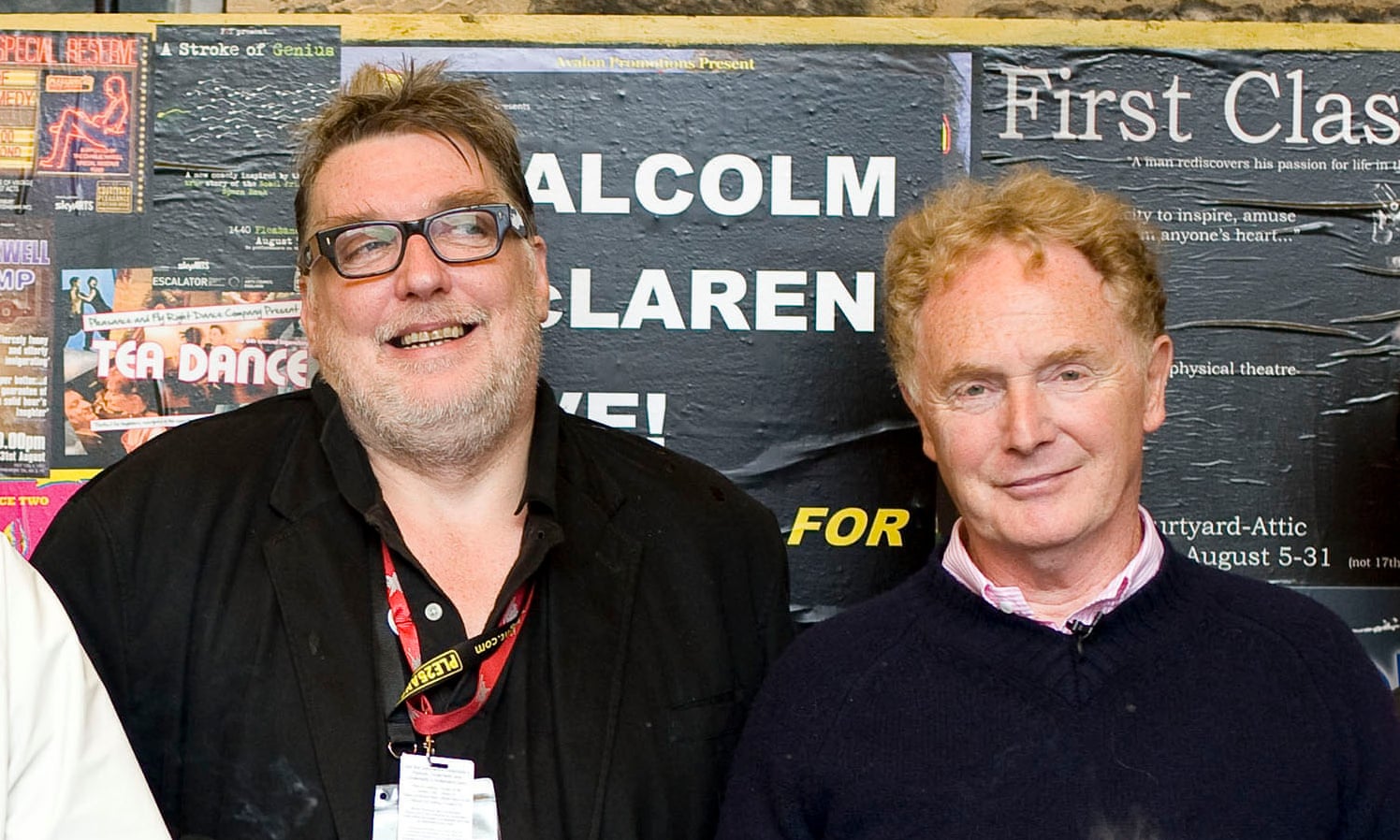David Johnson Obituary
Theatre producer who took cult acts and controversial shows to bigger audiences
Through his 30 years as a theatre producer, David Johnson, who has died aged 60, maintained a keen eye for the unlikely hit. Work that to other producers might seem too niche, too cultish or simply too vulgar would be picked up and – with a canny blend of shock and showmanship – reach audiences far bigger than anyone else could have imagined.
In September 1997, when my play Shopping and Fucking began its West End previews, ticket sales were sluggish. David, who with his business partner, Mark Goucher, had transferred the play (my first) from a small studio at the Royal Court, seemed untroubled. “It’s a different kind of show for a different kind of audience,” he counselled. “They’ll come.”
And they came. With hundreds of tickets sold that afternoon, we opened to a busy theatre and continued for a further two years of national and international touring and a New York production starring Philip Seymour Hoffman.
Born in Duffield, Derbyshire, the son of Peter Johnson, a wire manufacturer, and Sandy (nee Bates), a caterer, David spent a miserable time as a boarder at Harrow school before studying at the London School of Economics. London life suited him and he eagerly threw himself into the early 1980s club scene, an enthusiasm that led to work as a music industry PR, promoting major acts, among them Tina Turner and Dionne Warwick.
Through a mutual friend, David was introduced to the art lover, critic and jazz singer George Melly. Estranged from his own father, David found in Melly – who had rejected a privileged background for a life of “rum, bum and concertina” – a great friend and a role model for a life of heavy drinking, fine dining and art for everyone.
With the death of a close friend from an Aids-related illness in the late 80s, David began publicising events for the Terrence Higgins Trust, working alongside – among others – Stephen Fry, Alan Rickman and Ruby Wax. It was this introduction to the theatrical world that led him to consider becoming a producer.
After an early foray producing Melly on the Edinburgh fringe in 1990, David teamed up in 1992 with Mark, a producer, and in 1993 the pair – as G and J – produced 20 shows in Edinburgh. The transfer of one of these shows, Steven Berkoff’s One Man, to the Garrick theatre gave them their first footing in the West End.
Another early “find” was Graham Norton, who was performing as a comic Mother Teresa of Calcutta before G and J brought him – without the wimple – to the London Arts theatre. Norton rapidly drew the interest of television executives.
With their transfer in 1994 of the Glasgow Citizen’s adaptation of Irvine Welsh’s Trainspotting to the Ambassadors theatre (two years before the film version), Mark and David consolidated their reputation as producers who best understood the taste of a new audience, while the Reduced Shakespeare Company’s 11-year run at the Criterion theatre proved they could produce a show with real “legs”.
Parting amicably with Mark in 1998, David began working from the living room of his flat in Kentish Town, with nightly trips to the Groucho Club in Soho to meet his acts, organise deals and catch up on the day’s gossip.
After a one-off event produced by the National Film Theatre, David approached the Rodgers and Hammerstein organisation and persuaded them to give him the rights to present Sing-a-Long-a Sound of Music at the Prince Charles cinema in Leicester Square. With a rota of celebrity hosts and a fancy dress competition that saw large parts of the audience dressed as nuns, goats and sometimes curtain rails, the show became a long-running Sunday afternoon institution.
Seeing a show in a tiny venue in Edinburgh in 2000, David declared “I’ve just made my next million!” and developed Puppetry of the Penis into an international phenomenon, recruiting several companies of young men to tour the world, contorting their members into various shapes for packed – and almost entirely female – audiences.
It wasn’t all silliness. David advised his former G and J colleague Virginia Buckley on setting up a national tour in 1999 of the Tricycle’s The Colour of Justice, widening awareness of the racially motivated murder of Stephen Lawrence. He and Buckley collaborated on the transfer in 2006 to the Playhouse theatre of the Royal Court’s My Name Is Rachel Corrie, the testimony of a young activist killed by an Israeli soldier, edited by Katharine Viner (now editor-in-chief of the Guardian) and directed by Rickman.
After seeing his documentary film Bowling for Columbine in 2002, David suggested to the American satirist Michael Moore that he present a live show in London. A sold-out run at the Camden Roundhouse followed, with each performance ending with the audience gleefully throwing their store loyalty cards into a giant shredding machine.
After producing Stewart Lee’s one-man performance What Would Judas Do? at the Bush theatre in 2006, David, alongside his new producing partner John Mackay, was approached by Lee to take on his live work, and a series of national tours and London residencies followed. A regular relationship was also formed with the satirical songwriters Fascinating Aïda, who could see – as Lee had done – that David cherished his acts and worked furiously to promote them.
David was diagnosed two years ago with a progressive lung condition, and his health deteriorated rapidly in November.
He is survived by his mother and by his sisters, Sarah and Deborah.
• David Johnson, theatre producer, born 12 October 1960; died 13 December 2020
